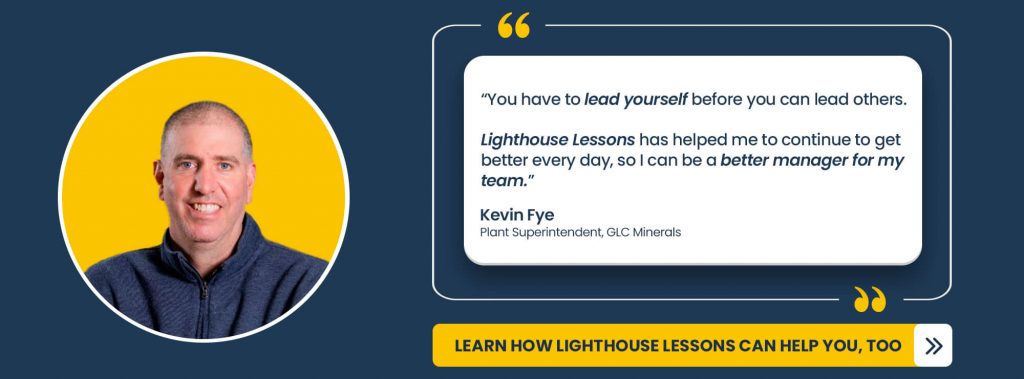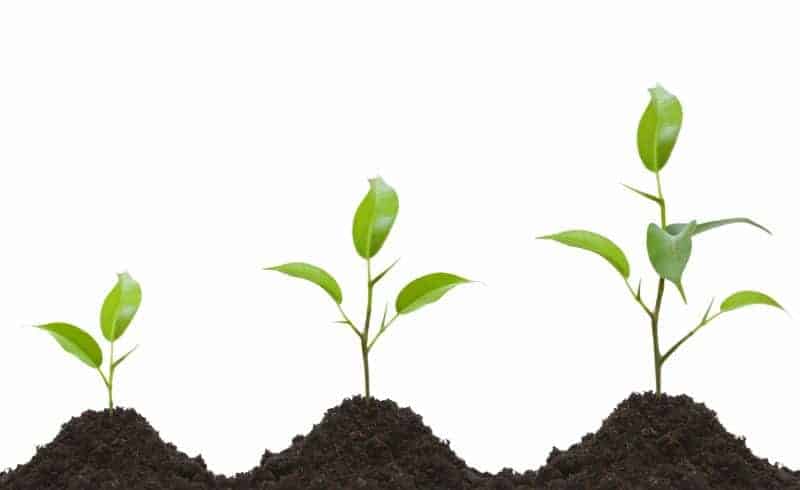"Wait, what was I doing?”
Ever lose track of what you're doing, or find it hard to focus?
With working from home becoming the norm during COVID-19, we're all dealing with more distractions and workplace stress than ever before. Statista cites these distractions as the leading causes of our lack of productivity during this pandemic:
- Social media
- Smartphones
- Constant notifications & alerts
- Binge-watching
- Kids
- Gaming
We're being bombarded by information from the moment we wake up to the moment we go to sleep.
Take a quick look at the screen time stats on your phone. There's a good chance you could have spent some of that time on something more valuable. It's a challenge for all of us.
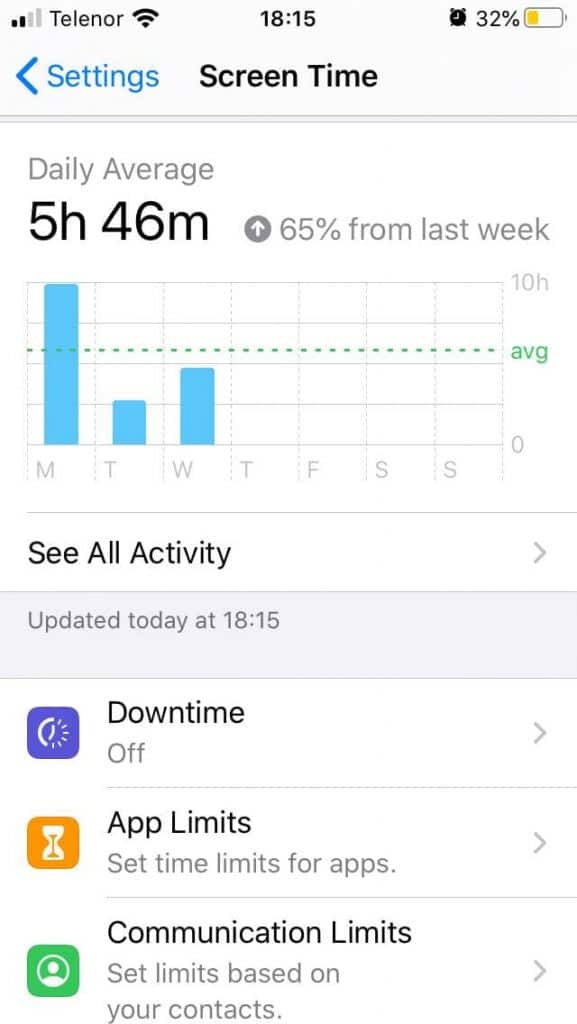
However, there is still hope. You can overcome many distractions and stress-related challenges by practicing mindfulness.
In a nutshell, mindfulness means focusing your attention on the present moment. It involves an accepting, non-judgmental outlook on where you are and what you're doing right now. Being mindful is usually tied to a point of focus (like your breathing or a feeling).
In the context of the workplace, mindfulness has been proven to positively affect both psychological well-being and productivity.
That's why today's post takes a look at how you can use it to transform your and your team's habits for the better.
The 4 benefits of improving mindfulness at work for you and your team
During the past two decades, scientists who have studied mindfulness have discovered a wealth of its positive effects, including:
- Enhancing attention
- Improving mental health
- Positively impacting your relationships
- Helping you cope with stress, and others.
Interestingly, while interviewing 140 people at the top of their fields, author Tim Ferris noticed they shared one habit: they all practice mindfulness.
Given these benefits, it's no wonder mindfulness can have a huge impact on you and your team.
Table of Contents:
- Mindfulness at work will help you inspire confidence as a leader
- Mindfulness at work is great for mastering workplace stress
- Mindfulness at work will help you manage distractions effectively
- Mindfulness at work can lead to a highly productive Flow State
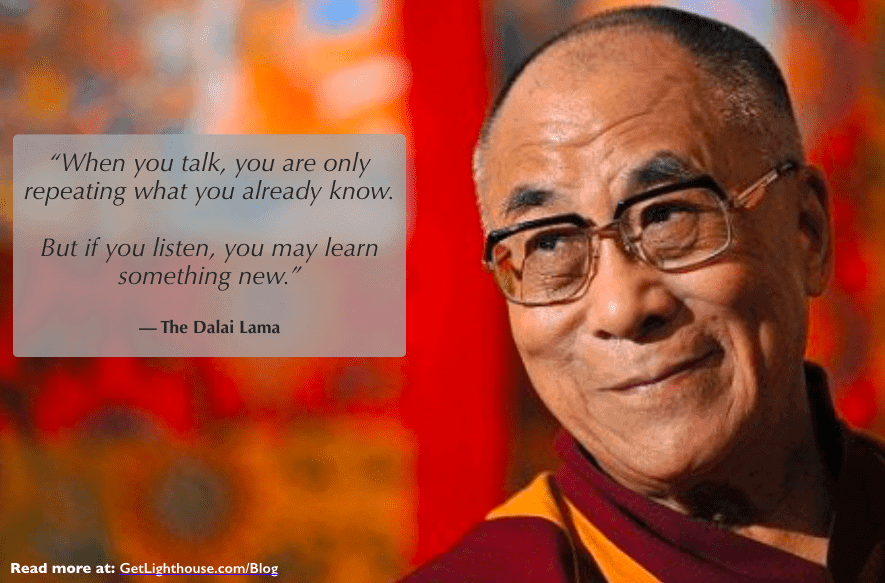
1. Mindfulness at work will help you inspire confidence as a leader
Out of these two manager types, who do you think has a better chance of bringing out the best in their team:
- The manager who listens to people carefully, remains focused during meetings, and shows empathy and understanding
Or
- The manager who can't remember your name, lets his/her thoughts wander off, keeps asking the questions you already answered, and throws people under the bus?
If you've answered 1, you already know what mindful leadership is. Practicing mindfulness can make you a better leader in every way imaginable. It can positively affect your decision-making, make you a better listener, and improve your self-awareness.
By being a more focused, empathetic manager, you'll get more respect and honesty from your people. Rather than dread every interaction with you, they'll look up to you and try to be more like you.
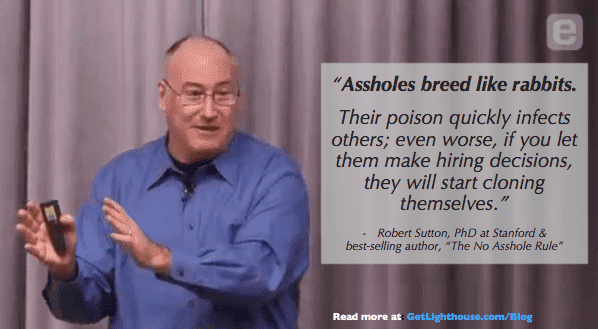
How not to be a jerk
Dan Harris, the creator of the mindfulness app "Ten Percent Happier”, has one of the most original views on mindful leadership we've ever heard:
"It's about not being a jerk. At some basic level, it comes back to that.”
Harris believes no leader wants to come across as a jerk on purpose. However, many managers give their people the wrong impression by not paying attention to how they're treating them.
Not being attentive will inevitably make you seem more distant and alienate you from everyone. It also sets a bad example to your team and invites people to act the same way toward you.
To avoid being seen as a stereotypical bad manager, you need to constantly work on being more mindful and perceptive.
Try mindful meetings - everyone will thank you
Mindfulness can carry over from your personality to the way you organize work. There are simple ways of nurturing a culture of mindfulness for everyone on your team.
Mindful meetings are just one example.
How many times have you heard people complaining about how dull and useless their meetings are? This doesn't have to be the case.
Mindfulness principles can be applied to your meetings as well. Try the following guidelines to ensure you're not wasting anyone's time:
- No Phones: Let people know they can't use phones during meetings so their attention is undivided
- Take Notes: Always have a designated note-taker who shares meeting notes with everyone
- Hear Everyone: Make sure everyone present gets a chance to speak and voice their opinion
Pay attention to how your people feel and what they have to say. Think about how changes in your personality can impact them. By being a more mindful leader, you'll see some of your positive traits reflected in their behavior as well.

2. Mindfulness at work is great for mastering workplace stress
Workplace stress is becoming more of a worry for people in the United States than it's ever been. According to AIS, "80% of workers feel stress on the job, nearly half say they need help in learning how to manage stress, and 42% say their coworkers need such help.”
The COVID-19 crisis has made the situation even worse. A survey by Qualtrics and SAP reported in the Harvard Business Review revealed that:
"Since the outbreak of the pandemic, 75% of people say they feel more socially isolated, 67% of people report higher stress, 57% are feeling greater anxiety, and 53% say they feel more emotionally exhausted.”
Our relationship with technology isn't helping either: being bombarded by notifications, emails, team chat tools, and social media leaves all of us feeling more anxious and stressed.
Use mindfulness to face issues head-on and reduce stress
Mindfulness can help both you and your team members deal with stress in a number of ways. It can help you retain focus and concentrate on one thing at a time. This is crucial, as uncertainty caused by having to do too much fuels anxiety in our brain.
Mindfulness also teaches you how to deal with issues instead of running from them. The great first-century Roman philosopher Seneca once said: "We suffer more often in imagination than in reality.”
As humans, we're prone to overreactions and irrational thoughts. It's in our nature. However, simply noticing you're having irrational thoughts can help you overcome them and move on.
Take time to process what's going on in the present moment. No matter the cause of your workplace stress, being more mindful about how you're handling it will help you move past it and stay on track. More on this later.
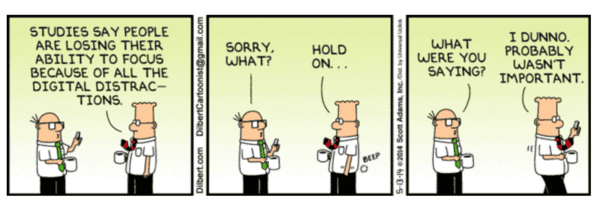
3. Mindfulness at work will help you manage distractions effectively
Let's face it - there are many, many things stopping us from being productive throughout the day. They may not seem like much, but when they add up, they can make our thoughts scattered and uncertain.
We're all prone to scrolling through our news feed or checking out a few Instagram stories at least a couple of times a day. Then there's getting coffee, taking a lunch break, having a chat with our colleagues, …
And then, once we get into our "work” mode, there's other issues that can shift our attention bit by bit. We can often get sidetracked even by ‘productive tasks'. These can include:
- Answering non-priority emails
- Responding to non-urgent chat messages
- Reorganizing your desk
- Doing chores (if you're working from home)
As psychologist Jordan Peterson puts it, "Your attention is constantly mediated by unconscious forces.” As the day goes on, this becomes more of a problem.
Peterson notes that having more things to do often causes a sense of uncertainty in our minds. To counter this, he suggests establishing a regular sleeping routine and maintaining a healthy diet at the very least. This way, there will be "islands of stability” in your life, making it more difficult for unconscious forces to distract you.
Overcoming decision fatigue
All the distractions we face daily can add up to generate stress, too. This is what's known as decision fatigue.
As we're forced to make more decisions, our ability to do so worsens. We become more impulsive and less able to resist temptations. That's why there's always candy at the check-out counter of every store, and it's harder to resist snacking late at night than when you first wake up.
Luckily, practicing mindfulness is one of the easiest ways to block out distractions during the day and make sure you're focusing on the right things. One study has shown that practicing mindfulness for even 10 minutes a day can make people up to 50% more perceptive and concentrated.
Additionally, almost every mindfulness technique involves noticing that your focus has shifted away from the present moment and refocusing on it.
This can help you make blocking out distractions a regular habit. According to a Harvard University study, we spend 47% of our time thinking about things other than the present moment. Just think of how much more stuff you can get done if you reduced that 47% to more like 20%?
4. Mindfulness at work can lead to a highly productive Flow State
Have you ever been so immersed in work that you didn't notice anything around you? Or have you had extended periods of productivity during which you would ‘zone out' completely?
If the answer is yes, you've probably experienced a state of mind known as "flow”.
The term "flow” was popularized by Hungarian psychologist Mihaly Csikszentmihalyi. It can be described as the state of effortless concentration and peak mental performance.
As Csikszentmihalyi puts it, "it's a state in which people are so involved in an activity, that nothing else seems to matter.”
Flow often occurs when a person's body or mind is stretched to its limits. It can happen when you're trying to accomplish something difficult and worthwhile for extended periods of time.
Unfortunately, we're so used to interruption these days, we can only dream of achieving such a state of mind. Whether it's your phone, inbox, a coffee or a lunch break, or any other distraction, there's always something there to stop us from being productive and focusing on our true priorities.

Use mindfulness to fight the monkey mind
There are specific areas of the brain that are activated when we're not focused on anything. These areas are responsible for our inner chatter and the annoying stream of information that stops us from being productive. Buddhist monks even have a fitting name for this stream of information - the monkey mind.
Mindfulness plays a key role in turning off the areas of our brain responsible for our lack of focus. As Tim Ferris puts it:
"Being mindful is a meta-skill that improves everything else. With it, you're breaking a lifetime's habit of walking around in a fog of rumination and projection, and you're actually focusing on what's happening right now.”
Studies have shown that practicing mindfulness negates the activity in the "unproductive” areas of our brain, boosts our chances of achieving flow, and even strengthens our immune systems.
Yes, these benefits kind of sound like something from one of those "Doctors will hate him!” click-bait ads on the internet, but they're real.
If you work on being more mindful, you'll quickly start to see big improvements in your concentration. And, with time and practice, you'll even be able to enter a state of flow while working.
Then, you could also help your team become more mindful, being exactly the kind of multiplier manager that helps create outstanding results.
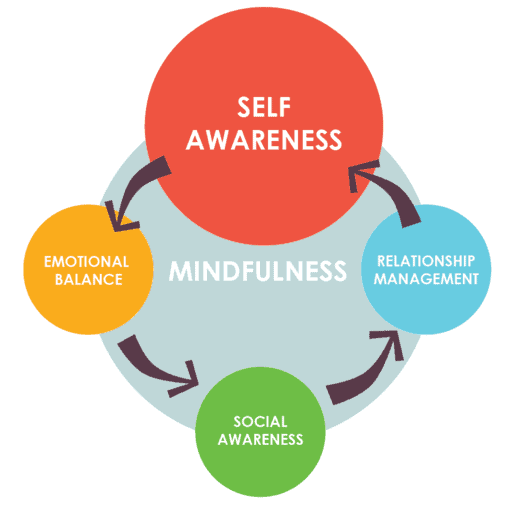
Get MESSy - combining mindfulness with other practices for better health
Now that we've covered some of the most important benefits of mindfulness, here's how you can combine it with other habits and techniques for an even greater impact on your health.
We're not huge fans of acronyms, but we really liked the "Get MESSy” principle from Stanford Lecturer and leadership coach, Ed Batista. It's meant to help you face your emotions and regulate them, rather than suppress them.
These are the four pillars of "getting MESSy”:
M - Mindfulness:
Many people have the misconception that mindfulness is about zoning out and forgetting your troubles. This couldn't be further from the truth. As we've already written, the goal of mindfulness is to become more effective at noticing what we're feeling.
The easiest way to improve mindfulness is meditation, but there's a ton of other approaches you can try to make you and your team more mindful.
E - Exercise:
We all know about the benefits of exercise, but it's not always easy to make time for it in our lives.
Regular physical activity can alleviate the negative effects of stress, help us control our emotions, and boost our productivity.
Combining exercise with mindfulness will allow you to find balance both physically and mentally. Some forms of exercise, like running and yoga, naturally practice mindfulness as part of their processes.
S - Sleep:
Humans are the only animals who willingly deprive themselves of sleep, according to Johns Hopkins sleep experts Charlene Gamaldo and Rachel Salas. Research shows that when we're not well-rested, our ability to regulate emotion becomes severely impaired.
Getting enough sleep is more than just about being more emotionally stable - it also lowers the risk for malicious diseases such as cancer.
S - (Reducing long-term) Stress:
Do you know why zebras don't get ulcers? According to Stanford professor and neurologist Robert Sapolsky, it's because their bodies are built to react to immediate danger, like running away from a lion.
Ulcers, on the other hand, form only as a reaction to long-term stressors. Humans have been running away from predators for millions of years, so our bodies still react to stress as if they're facing an immediate threat.
The issue there is that our problems persist for much longer, and our body's stress response wreaks havoc on our health in the long term.
We won't go into too much detail as this is a very complex topic, but the same things that allow us to run away from predators cause some of the worst health problems imaginable if they go on for too long.
Zebras have no time to develop ulcers. However, long-term stress can cause our bodies to literally self-destruct. That's why avoiding it should be one of your biggest priorities.
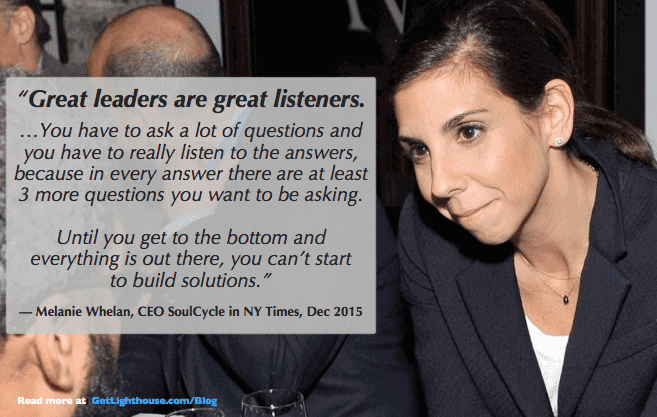
More techniques you can combine with mindfulness
The MESSy acronym is a great way to remember the basics. And if you want a few more options to improve your habits, you can also try:
- Active listening
- Mid-day meditation
- Breathing exercises
- Taking breaks, especially in nature
- Not responding to every email immediately
- Setting boundaries
- Practicing conscious concentration
Conclusion
The benefits of mindfulness are literally too many to count.
In the past, mindfulness used to be associated with Buddhist religious practices and sounded kind of exotic. However, the effects have been proven to be universally beneficial for our health, focus, and emotional stability.
Practicing mindfulness doesn't have to take more than 10-20 minutes a day. When combined with regular exercise, high-quality sleep, and proper stress management, it can change your personality and habits for the better.
Mindfulness will help you become a more empathetic, perceptive leader and address challenges directly instead of avoiding them.
These improvements can have a domino effect on your team. You'll start to see more positive patterns in their behavior and communicate with everyone more transparently.
You can take these improvements to a new level if you share some of the mindfulness techniques we mentioned in this article with your team members. Practicing mindfulness will help all of you deal with stress more easily, which will help your whole team work better together.
And if you want to read more about how to practice mindfulness with your team and deal with workplace stress, we recommend reading the articles below...
Further reading
- Mindfulness at Work: How Mindfulness Can Make You a Better Manager
- Avoiding Employee Burnout: How to Help You & Your Team Thrive in Quarantine
- 8 Ways to Address Your Workplace Stress You Can Start Today
- Why Managers Should Take a Break
- How to use a Positive Outlook to Make Yourself a Better Leader
- How to Break the Vicious Cycle of Reactive Management
Are you growing as a leader? Are you building the skills you need?
Get better as a leader every day with our bite-size leadership training programs, Lighthouse Lessons. Purpose built for busy managers like you, they help you become a better leader by mastering the skills that bring out the best in your team. You can learn more and sign up here.
